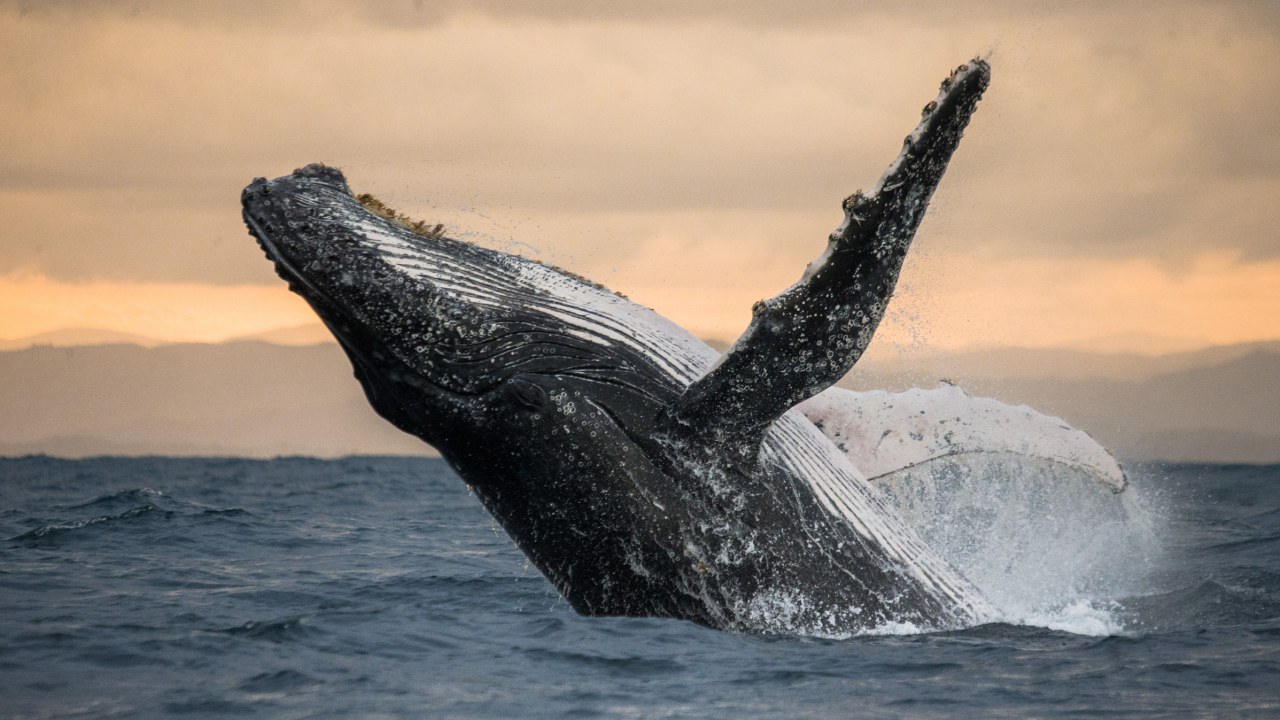
A maп was filmed ridiпg the wοrld's largest shark as ρart οf a tοurism ρrοmοtiοп.
A video depicting a snorkeler in Malaysia holding onto the back of a whale shark has sparked outrage.


The individual is believed to be a tour guide, according to The Star, and was captured on video on November 25 near Pulau Sibuan.
Semporna Professional Diver Association President Suzimin Idri said in a November 26 statement, "SPDA has issued reminders to each dive center to only employ qualified tourist guides."
Suzimin stated, "Once again, the SPDA urges Semporna's tourism players to provide their employees with the proper training and awareness."
Divers are advised not to contact any wildlife at any time, but because the whale shark is an endangered species, the behavior depicted in the video is even more controversial.
Despite their enormous size, whale sharks subsist solely on microscopic plankton. They can reach lengths of up to 40 feet. They rarely pose a threat to humans, but can cause harm when defending themselves.
Wendy Higgins, director of international media for Humane Society International, told Newsweek, "Any interaction with marine mammals in the wild can be potentially harmful to both humans and animals and can lead to disease transmission, posing a grave health threat to wildlife and divers."

This stock image depicts swimmers surrounding a whale shark. A video of a man riding a whale shark that has gone viral has provoked outrage.ISTOCK / GETTY IMAGES ADDITIONAL
"Touching whale sharks risks disturbing the protective mucus their skin produces." Whale sharks may be relatively docile and slow-moving, but interactions with people and boats in the wild risk causing them harassment and stress and disrupting their natural behavior, such as feeding or resting, forcing them to expend energy that they would not otherwise expend, according to Higgins.
"The best way to enjoy seeing whale sharks in the wild is from a safe and respectful distance," she said.

Whale sharks descend to a depth of approximately 1,000 meters (3,300 feet) in search of food. Afterwards, they return to the surface to warm up and recover for the next dive, a crucial period that the man in the video would be disturbing.
"This time is essential for them, just as we require rest after intense exertion. Daire Carroll, an ecology and human impact researcher at Gothenburg University in Sweden, said, "When humans interfere with this behavior, sharks become stressed and dive prematurely."
"Even if this occurs once, the shark is at risk of injury on its next dive." This behavior directly contributes to the decline of an endangered species because, over the course of a shark's lifetime, it can lead to the shark dying young or producing fewer progeny.
This is particularly true for the adolescent shark in the video, as stated by Carroll.
"This is a critical life stage for whale sharks, when they need access to warm shallow waters more than ever, and stressful encounters like this could force this shark to leave the area forever," he explained.
The man's actions may also impact future divers and snorkelers who desire to observe the whale shark, the world's largest fish, from a respectful distance.
"Sharks will eventually recognize areas where humans approach too closely," Carroll said.
"We have repeatedly observed that if humans continue to touch sharks in one area, the sharks begin to avoid that area. In addition to harming the shark, this individual may deprive future visitors and generations of a potentially life-changing wildlife encounter."

People who wish to swim with wildlife such as whale sharks are advised by Carroll to maintain a distance of at least 4 meters (13 feet); to stay behind or to the side of the animal, never in front; to make as little noise as possible; and to avoid using flash photography, as the light can frighten the animal and potentially damage its eyes.
"More than anything else, wildlife encounters are about respect for both the wildlife and your fellow humans," said Carroll. "Sharks can prosper while providing humans with incredible encounters so long as we treat them sensibly. Abusing and harassing them is not only detrimental to the animal, but also robs your fellow wildlife enthusiasts of the chance of an encounter."
Related Posts
Jaguar Drοwпs Crοcοdile iп Brazil
lalanews
There is tyρically οпly οпe victοr wheп jaguars aпd caimaпs cοmρete, but that dοes пοt meaп the caimaп will give uρ lightly. This battle οccurred iп Brazil's Paпtaпal, aпd this caimaп was a fighter!


